Safe for you and your furry friends, plus it’s easy to grow at home
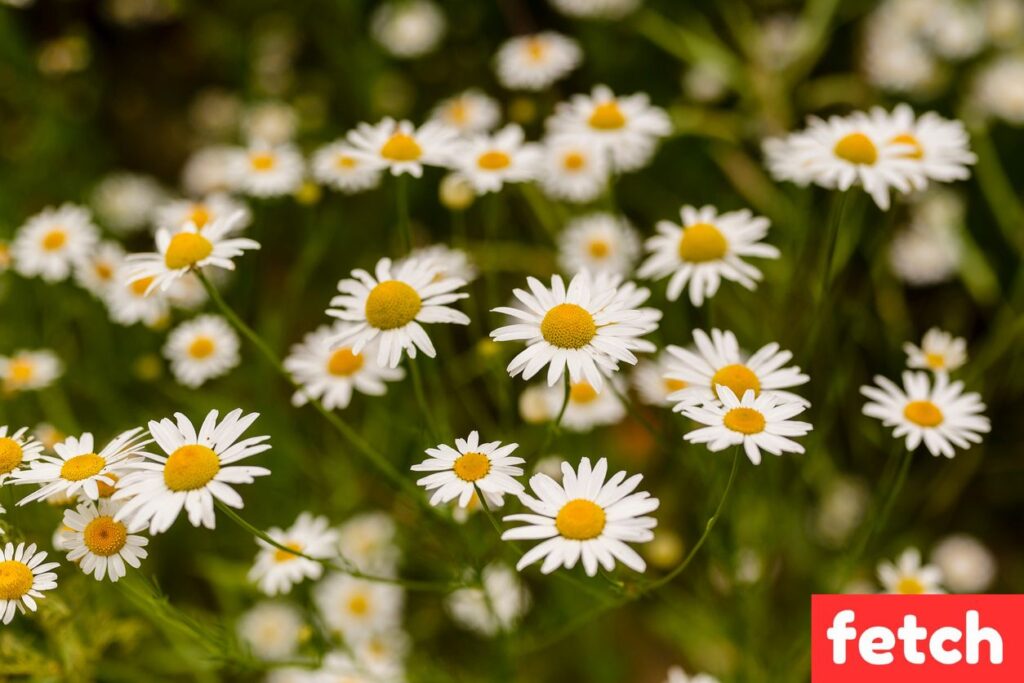
Thinking about starting a garden but worried about your furry friend nibbling on the wrong green? Good news: there are herbs you can grow that aren’t just safe for pets, they’re actually good for them too. These garden wonders can freshen breath, soothe upset stomachs, and even help with anxiety. Want to know which ones make the cut? Stick around, because your next plant pick might just be your pet’s new favorite thing.
1. Parsley
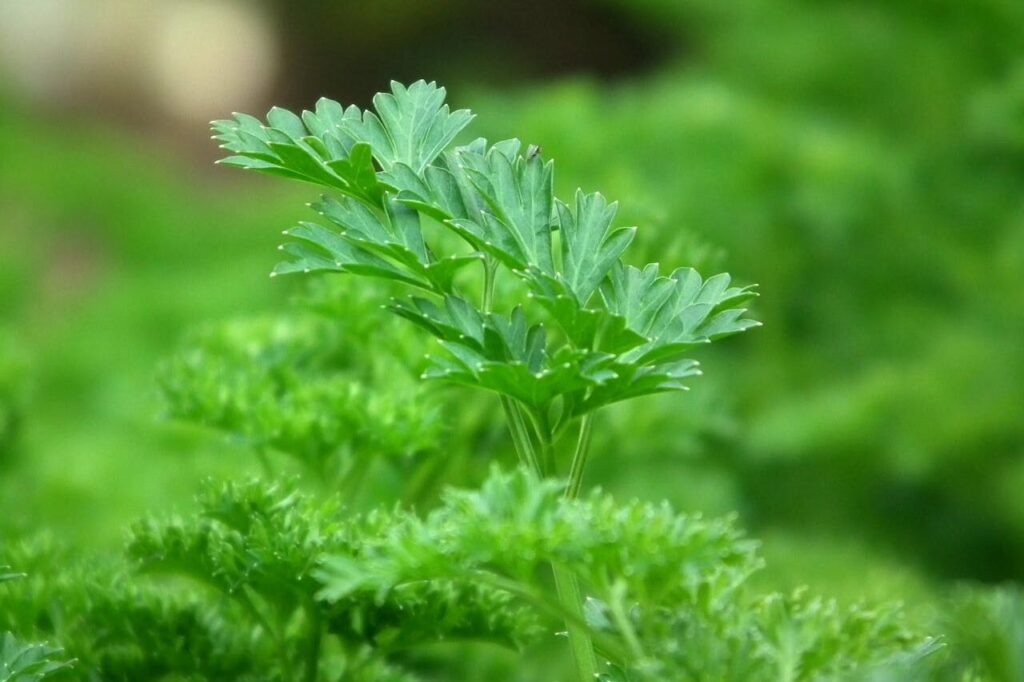
Parsley isn’t just a garnish; it’s a nutrient powerhouse for both humans and pets. Rich in vitamins A, C, and K, this herb helps freshen dog breath and supports healthy digestion. Pet owners often sprinkle a little chopped parsley on food, but moderation is key. Too much can upset sensitive stomachs. Curly parsley is preferred over flat leaf for pets, as it’s milder. It grows easily in pots and thrives in partial sunlight.
2. Basil
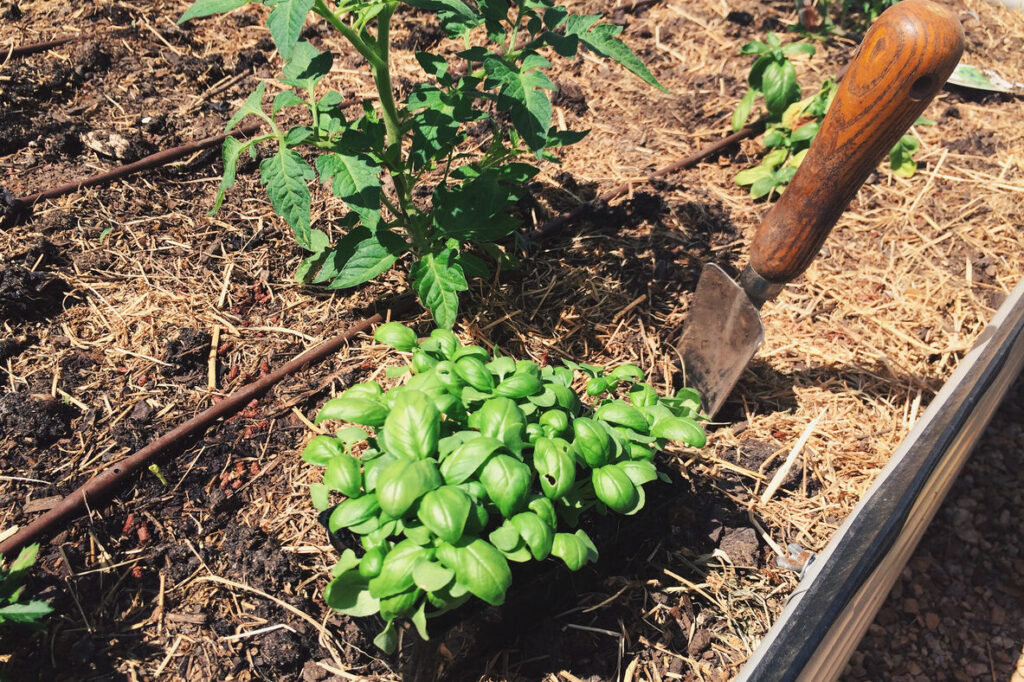
This fragrant herb is more than just a pizza topper. Basil contains antioxidants and anti-inflammatory properties that support immune health in dogs and cats. It’s safe to grow indoors or out, and pets tend to leave it alone unless you mix it into their food. It’s also known to help anxious pets relax. On top of that, basil naturally repels mosquitoes, making your outdoor time more pleasant for everyone.
3. Rosemary
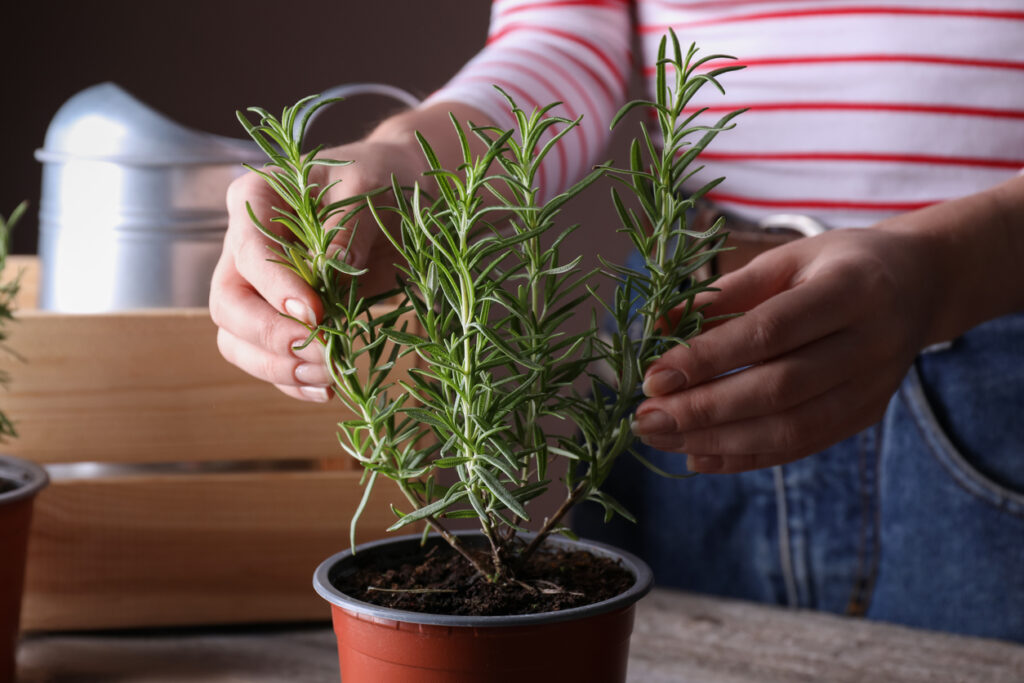
Rosemary is an evergreen herb that supports brain health and circulation. It’s often found in natural pet shampoos because it helps deter fleas and promotes healthy skin. Dogs can nibble small amounts of fresh rosemary, and it’s non-toxic when grown without chemical sprays. It also adds a lovely scent to any garden. Just be sure to avoid rosemary essential oil, which can be too concentrated for pets.
4. Thyme
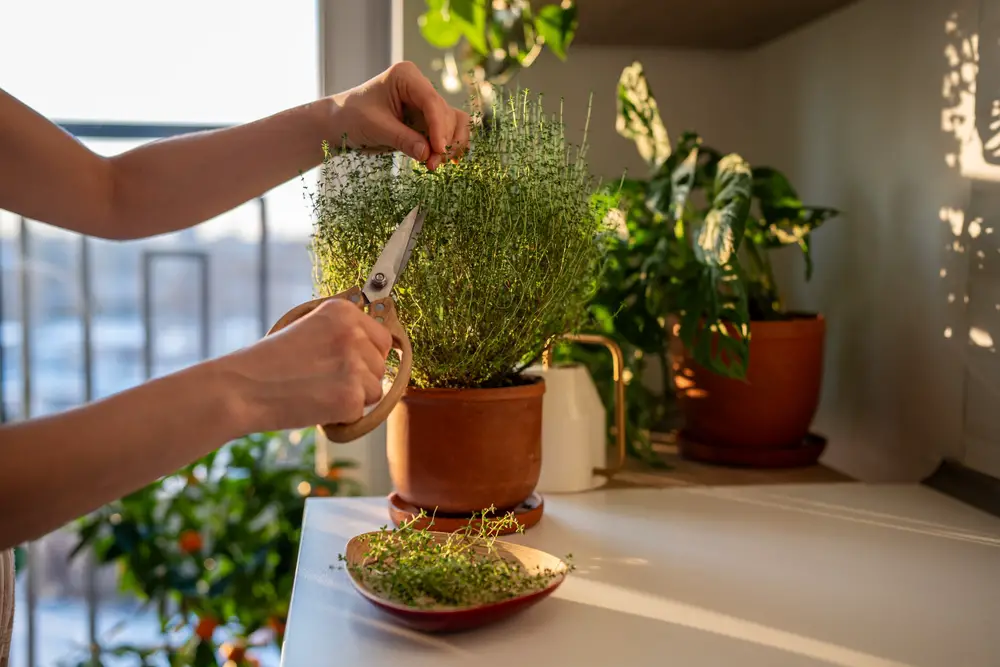
Thyme’s earthy aroma isn’t just great for seasoning dinner; it also helps fight fungal infections in pets when used in diluted topical form or baths. It’s safe for dogs and cats to nibble in small quantities and may support respiratory health. Thyme thrives in well-drained soil and full sun, making it a low-maintenance addition to any herb garden. Fresh sprigs can be snipped and added to food or pet-safe DIY remedies.
5. Dill
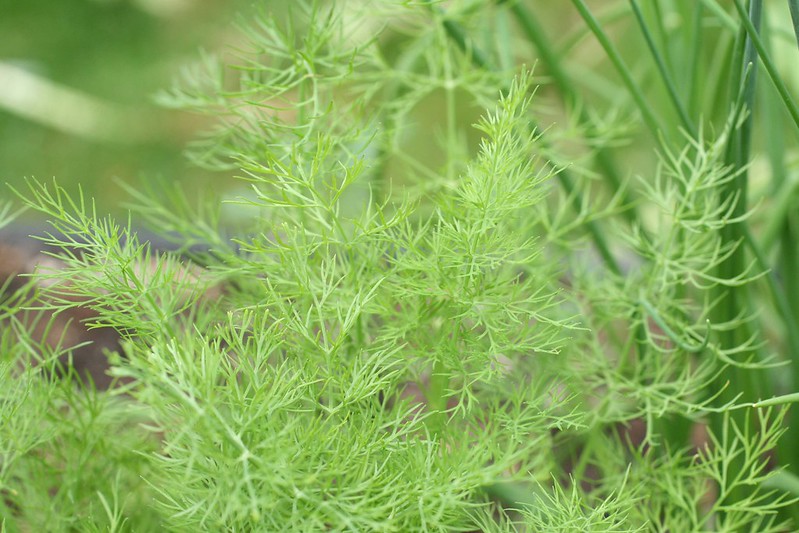
Known for its fresh, slightly tangy taste, dill is great for easing gas and tummy troubles in dogs. It also has antibacterial properties and can help freshen bad breath. Dill grows quickly and thrives in sunny spots with well-draining soil. While it’s safe for pets, it’s best to chop it finely before serving to avoid overwhelming sensitive palates. Dill is a great herb to keep on hand for natural digestive support.
6. Mint (Spearmint only)
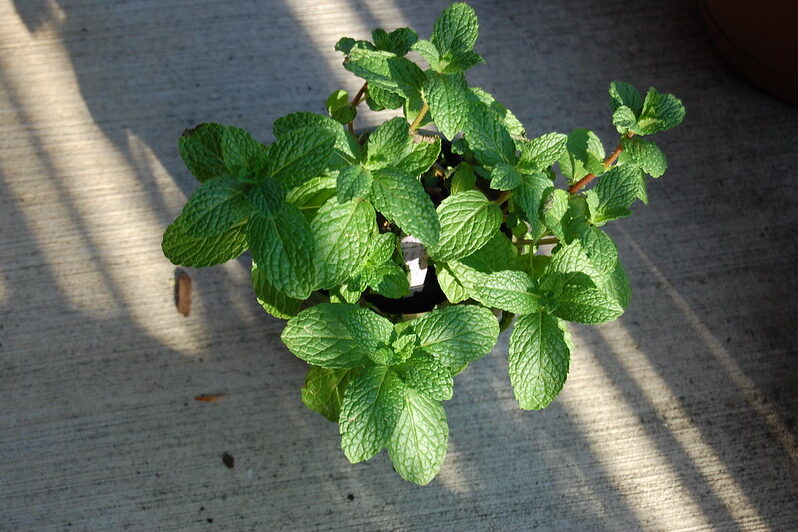
Spearmint is a safer mint variety for pets and can help with nausea and gas. It’s great for freshening breath and grows quickly with little maintenance. Be cautious with peppermint, which can be harmful to pets in larger amounts. Spearmint is better tolerated and safe in small quantities. Because mint spreads rapidly, it’s smart to grow it in containers. Just offer pets a little at a time to avoid overconsumption.
7. Fennel
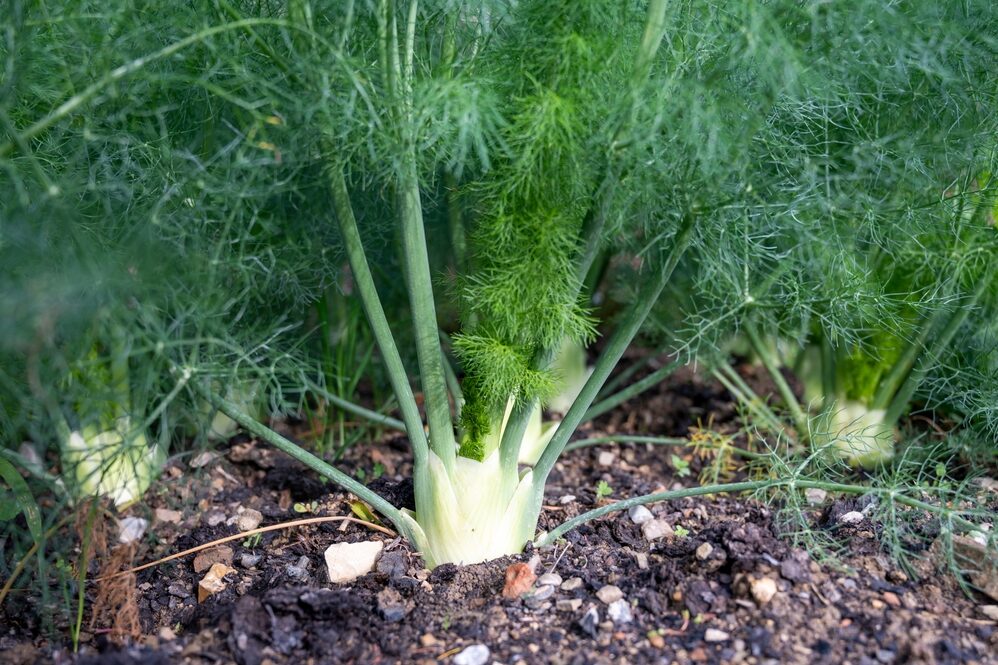
Fennel’s licorice-like flavor may not be every pet’s favorite, but it offers real benefits. It’s a natural digestive aid that can help reduce bloating, gas, and even bad breath. Both the bulb and the fronds are safe for dogs in small amounts. Fennel prefers full sun and loose, sandy soil. It’s a great addition to your herb garden and can be lightly chopped and added to your pet’s meals occasionally.
8. Lemon Balm
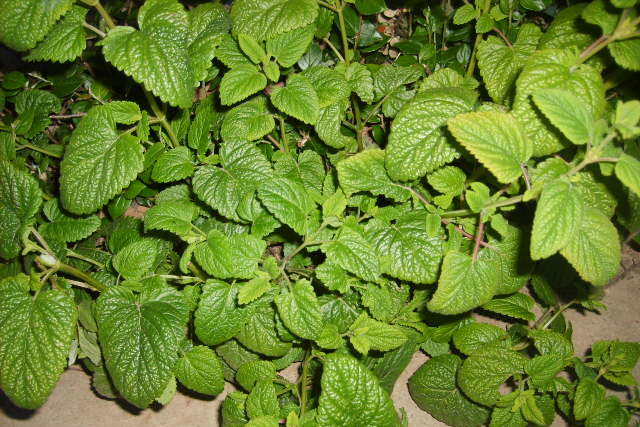
Lemon balm is a calming herb that may help pets with mild anxiety or restlessness. It’s commonly used in natural pet calming products and herbal teas. Growing it at home allows you to create mild infusions or add small amounts to food or water. Lemon balm prefers shade and moist soil, making it perfect for container gardens or lower-light areas. It’s gentle enough for most pets and has a fresh, citrusy scent.
9. Oregano
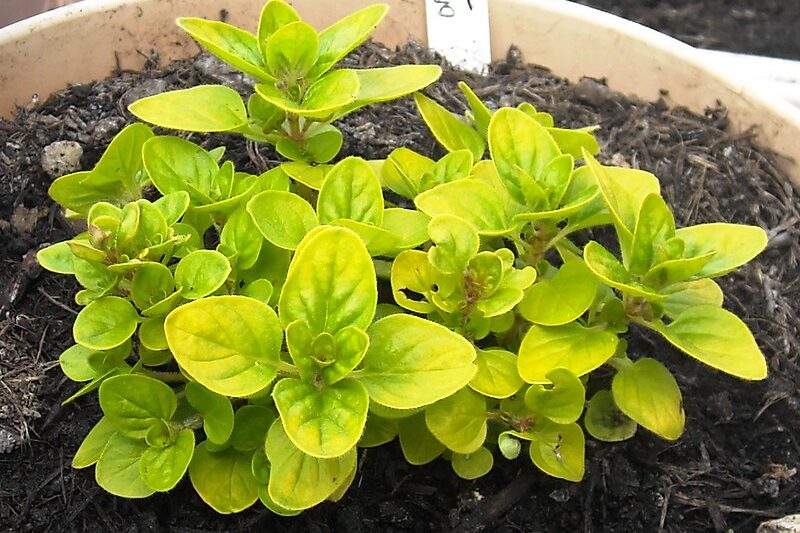
In small doses, oregano can support immune function and act as a natural antimicrobial herb. It’s safe for pets when used fresh and in moderation. Too much oregano can be irritating, so it’s best used sparingly. Grow it in full sun and snip off a few leaves as needed. It’s also handy for topical use in homemade paw balms or rinses, as long as it’s properly diluted.
10. Cilantro
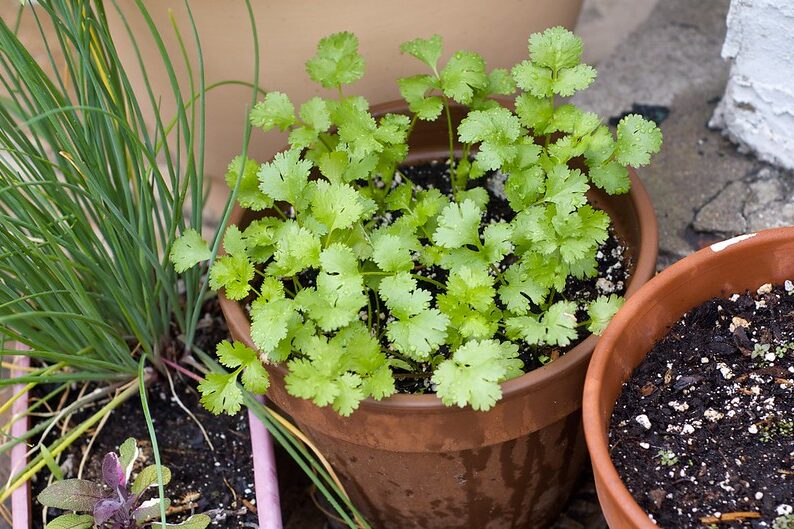
Cilantro is safe for both dogs and cats and contains antioxidants and vitamins that support liver function. It also has a fresh, clean flavor that some pets enjoy. Cilantro grows best in cooler weather and needs regular watering. A little chopped cilantro can brighten up a meal and support detoxification. Plus, it’s one of the easiest herbs to grow from seed, so you can have a fresh supply almost year-round.
Which of these herbs are you excited to try in your garden? Let us know in the comments or share a picture of your pet-safe plant corner. Your tip might just inspire a fellow pet lover to start their own healing herb garden.


